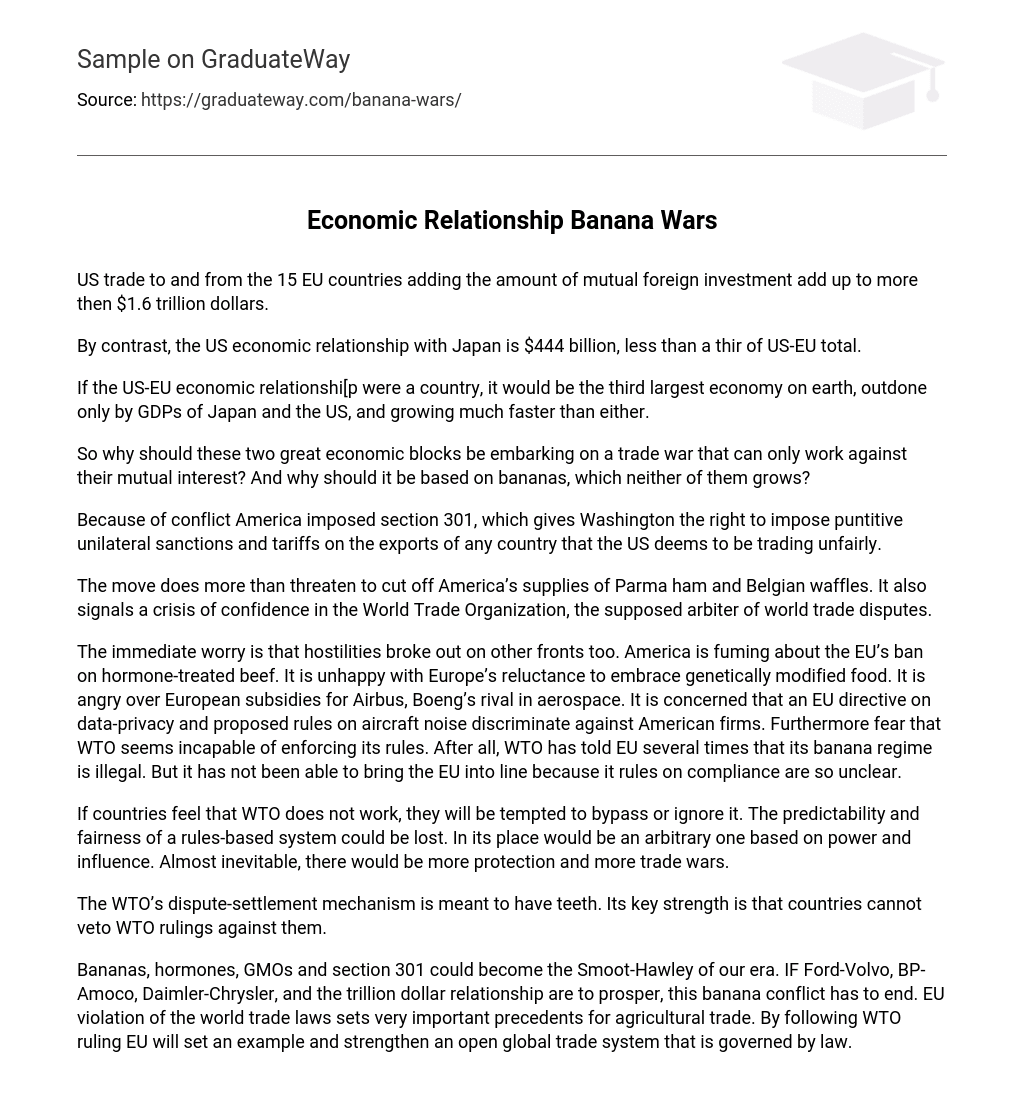US trade to and from the 15 EU countries adding the amount of mutual foreign investment add up to more then $1.6 trillion dollars.
By contrast, the US economic relationship with Japan is $444 billion, less than a thir of US-EU total.
If the US-EU economic relationshi[p were a country, it would be the third largest economy on earth, outdone only by GDPs of Japan and the US, and growing much faster than either.
So why should these two great economic blocks be embarking on a trade war that can only work against their mutual interest? And why should it be based on bananas, which neither of them grows?
Because of conflict America imposed section 301, which gives Washington the right to impose puntitive unilateral sanctions and tariffs on the exports of any country that the US deems to be trading unfairly.
The move does more than threaten to cut off America’s supplies of Parma ham and Belgian waffles. It also signals a crisis of confidence in the World Trade Organization, the supposed arbiter of world trade disputes.
The immediate worry is that hostilities broke out on other fronts too. America is fuming about the EU’s ban on hormone-treated beef. It is unhappy with Europe’s reluctance to embrace genetically modified food. It is angry over European subsidies for Airbus, Boeng’s rival in aerospace. It is concerned that an EU directive on data-privacy and proposed rules on aircraft noise discriminate against American firms. Furthermore fear that WTO seems incapable of enforcing its rules. After all, WTO has told EU several times that its banana regime is illegal. But it has not been able to bring the EU into line because it rules on compliance are so unclear.
If countries feel that WTO does not work, they will be tempted to bypass or ignore it. The predictability and fairness of a rules-based system could be lost. In its place would be an arbitrary one based on power and influence. Almost inevitable, there would be more protection and more trade wars.
The WTO’s dispute-settlement mechanism is meant to have teeth. Its key strength is that countries cannot veto WTO rulings against them.
Bananas, hormones, GMOs and section 301 could become the Smoot-Hawley of our era. IF Ford-Volvo, BP-Amoco, Daimler-Chrysler, and the trillion dollar relationship are to prosper, this banana conflict has to end. EU violation of the world trade laws sets very important precedents for agricultural trade. By following WTO ruling EU will set an example and strengthen an open global trade system that is governed by law.





